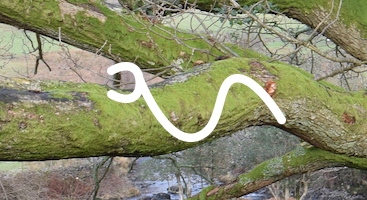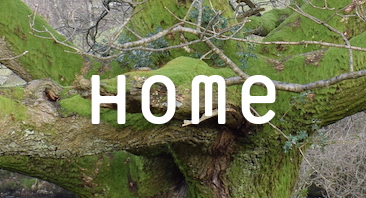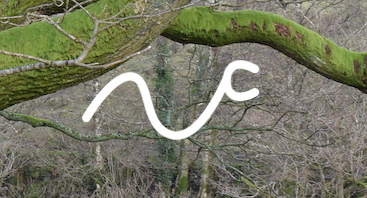By a Wayside Shrine
How far, then, do those gods of yours protect you
from the brutalities of strangers,
the sins and things of living?
We come from Bucovina and from Pliskova,
from Stalingrad and Ur, our hammers and our hoes
beaten and shaven into musketry and halberds,
we arrive by longship, raft and frigate,
by troika and Sikorsky,
bent and bundled in the backs of vans,
in troop trains, trucks and ocean liners,
escaping factories and evading fires
that gather round the rooms
we tried to make a living in
with livid looms in martial mills.
There has never been so much
fucking in odd corners.
Angels cluster in those malodorous clouds
that linger over burned-out towers
inaptly and unsafely clad
by bureaucrats routinely on the take
because that’s just how things stand.
With fingers in every pocket
the people’s chosen malefactors
ease their way on shiny palms
while others can go hang.
There has never been so much
smoke hanging over the suburbs.
That place where high king Brian, Murchad
and Toirdelbach died, earl Sigurd
and Brodir of Man were slain
is become a suburban transport hub:
from here you may catch a train to Connemara
or a plane to Timbuktu – you may even
have a hovercraft to carry you home.
We come from Gondwara and the Heights of Abraham,
from caves carved under cratered cities
and plains where the buffalo formerly roamed.
We come by battlebus
with bent backs
to harvest your provender
and sweep your streets clean
of every incriminating trace.
There has never been so much
blood on the nighttime streets.
Your death may be a metaphor
and yet still be your death;
it may creep up on you unawares
or catch you smack, a swallowtail
on a windscreen.
There has never been so much
wrath in the public prints.
There has never been so much
fucking in odd corners.
Googly Earth
A painted woman is peering through the window,
peeking from behind the aspidistra;
do not catch her impossibly radiant blue eye –
it will follow you everywhere.
Down by the harbour a man in a comical hat
is sorting fish from fish
box by box, his attention
so wrapt in scales and eyes
he seems not to notice
the wound in his thumb
from which his trickling blood
mixes with that of the catch.
A god is standing by the gateway to the underground.
Should you notice him you’d see a faraway look
in eyes that reflect a different sky.
The contortions of the mad are carved in coad stone
on pediments poised above entrances
to the house of nostalgia and guns
where previously they played;
the museum is styled imperial
for the nation’s success
in exporting war to those faraway places
where spilled blood was visible only on the map:
the suicidal error of the abominated Teutons
was to attempt their genocide
so close to home.
Storm clouds conceal
whatever’s left of the sun
and hope’s last dictionary
dangles a well-turned phrase
but you do not understand where you are going;
nothing that’s sure to work has been agreed.
The hunt for unclaimed bones goes on
beneath a helicopter sky,
a child’s lost toy
fur-grimed in an untended hedge.
Where shall we go then
if the map is wrongly drawn?
Is the shivering of the children
from excitement, fear or cold?
Is it the future we dread, or the past?
What happened, they say, is unimaginable
and you may try to console yourself
by imagining all this
is in imagination only,
that the disturbed sounds
beyond the high lattice
mean neither conflict nor threat,
that this cell and its too-familiar walls
are mere artefacts
in the wrong eye of your mind
and yourself merely a character
in one of your own fictions.
But what takes place beneath
those acres of plain roofing
in zones where the map appears blank?
Talking Out of School
The crow now approaching the seminary roof
reveals itself as it lands as a reverend father,
wrapping its cloak around books and papers,
interferring with signals
from the wave transmitter mast.
She visits the school where Einstein studied physics,
gives an address on the great man’s ethical theory,
the political power of the fuck,
later is murdered by two smartphone operatives
with nothing else to do.
There are schools of thought as there are schools of fishes –
if only two, as in Hegelian or Marxist dialectics,
then we’re surely screwed,
the roar in the night the rumble of flying engines
and nobody piloting the whale.
And Afterwards?
In the town they are putting up roadblocks
widening trenches for history or power
constructing great buildings
a castle with nine towers in the high street.
Ah yes, you say, but who are these they?
What homes do they go to at the day’s end
whose husbands and wives
sit down to eat with?
For whom are they blocking the roads?
Will there be beans in the shops tomorrow?
Will there be shops? Beans in packets
or tins? Voices trembling on the air.
When did you last count the roofs?
The doors, the windows, the lost
empty walls, the faceless
lurking in shadow
the cars and all the lorries
still at the roadside.



